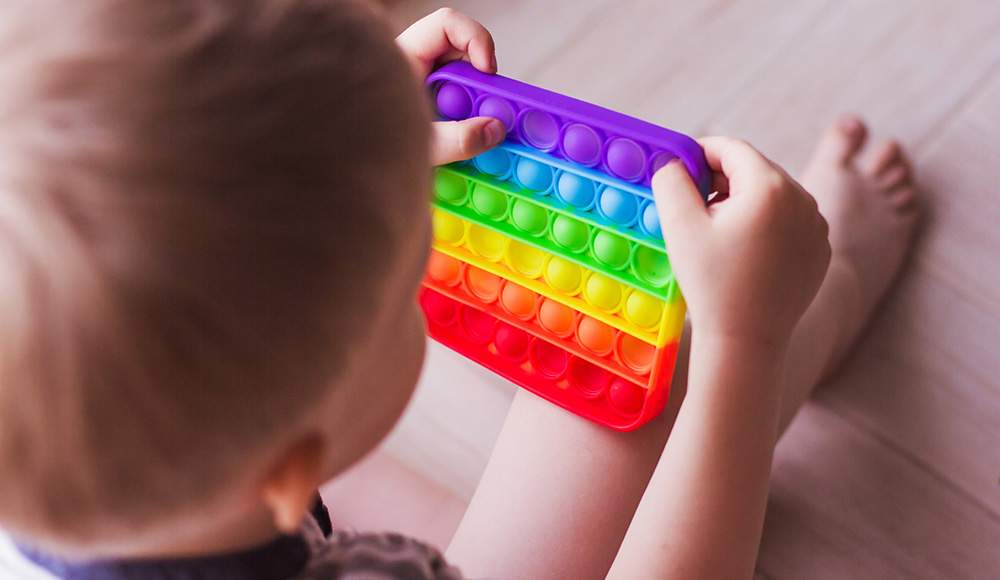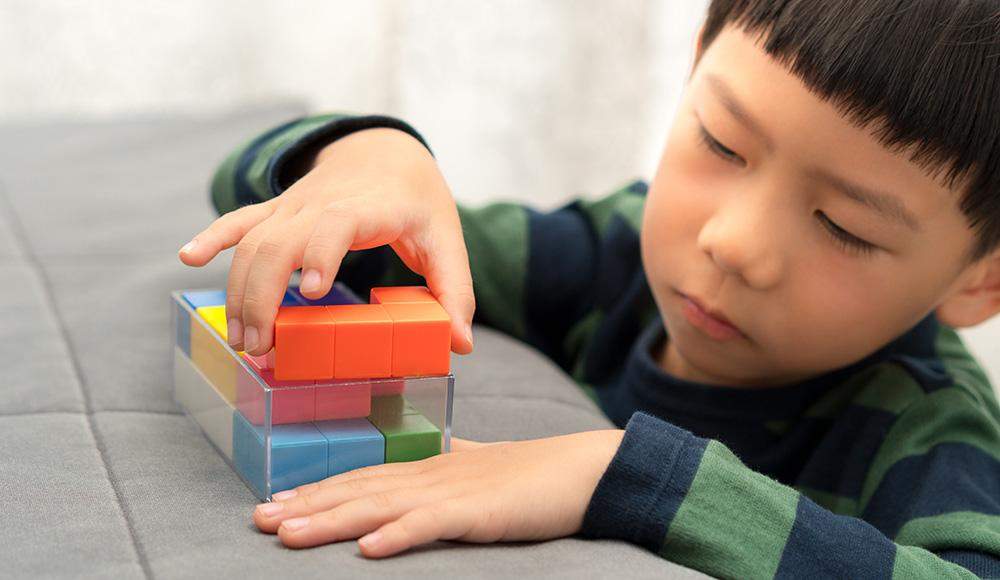General
Four Tips for Dealing with the Information Overload of Our Time
Technology and devices consume a large portion of our lives, often causing information overload – mental exhaustion brought on by having too much information or knowledge thrown at you at once. Because the human brain does not have an endless capacity for processing information at once, having quick access to a large amount of information…
Read MoreThe Information Overload in Our Time and Its Impact on Our Children
We live in a digital age. Regardless of what you need to learn, find, or research, the information is often just a click away. Unquestionably, this technological innovation offers endless benefits. But how do we handle information overload? And more importantly, how does it affect our children? What is the Information Overload? The phrase “information…
Read MoreAttention and Concentration Disorders Throughout History
Attention and concentration disorders are most common in children and adolescents but can last into adulthood. Although not all attention problems in childhood are ADHD, attention deficit hyperactivity disorder (ADHD) is the most commonly associated with attention and focus challenges. Children with ADHD have different brain development and activity patterns, which affect their attention, impulsivity,…
Read MoreWhat is Empathy, and Why Does It Matter?
Empathy represents our ability to understand other people’s feelings. Empathy involves emotional and cognitive reactions to other people’s experiences, allowing us to recognize and understand other people’s emotions. But why is empathy so important for our kids’ future? When we understand how other people feel, we can use this understanding to communicate more effectively and…
Read MoreHomeschooling: How to Educate Your Kids at Home
The homeschooling movement is not a new concept as many children and adolescents worldwide already participate in home-based education programs. However, more parents are now opting for homeschooling across the world instead of sending their children to traditional public or private schools. During the past year, home-based learning has become commonplace for millions of families…
Read MoreHow to Teach Your Child Empathy?
Empathy involves cognitive and emotional processes that can be shaped by learning. For example, both the emotional component (feeling scared when another person feels scared) and a cognitive component (trying to imagine what others are feeling and thinking) of empathy can be developed and improved due to our brain’s flexibility. Namely, the brain can change…
Read MoreBeyond the Mask: Re-Acquaintancing with the Whole Human Face
With the ongoing health crisis improving, we expect to stop wearing face masks in the future. For many adults and children, seeing people’s faces covered with masks was overwhelming in the beginning. Face masks have made verbal communication more challenging, as people were not used to talking and listening to others speak through a face…
Read MoreFidget Toys and Their Benefits
Fidget toys are not only endlessly fun. They also have numerous learning and developmental benefits. Fidgets come in different sizes, colors, shapes, and textures, providing a valuable sensory experience. They can also promote movement and motor development, enhance focus and attention, and improve self-regulation. What are the Fidgets’ Main Advantages? Fidget toys improve learning as…
Read MoreBack to the Classroom
The ongoing health crisis and lifestyle changes caused by it continue to affect our lives. Only when we leave this situation behind will it be possible to determine its full impact on children, mental health, academic success, and development. Children have different experiences with switching school classrooms with distant learning. While some enjoyed home-based education,…
Read MoreThe Best Ways to Practice Classification, Categorization, and Sorting Skills in Preschoolers
Classification, categorization, and sorting skills are the basics of understanding and mathematical skills that come naturally to most children. Many kids enjoy sorting activities at a very young age – you have probably watched your child naturally sort objects according to their characteristics such as color, size, or shape without being taught or instructed to…
Read MoreActivities that Boost Visual Perception Skills in Children
Visual perception skills represent the brain’s ability to absorb and make sense of what we see with our eyes. Visual perception is necessary for cognitive processes such as reading, writing, completing math problems, and many life skills. Therefore, visual perception deficits can cause issues with mental operations. Visual perception skills involve seven components: Visual discrimination.…
Read MoreHow to Improve Hand-Eye Coordination at a Young Age?
Hand-eye represents the capacity to use hands and eyes simultaneously to do various activities. We use hand-eye coordination to perform actions in which our visual-spatial perception (eyes) guides our hands to carry out a movement. In other words, hand-eye coordination allows us to unite our visual and motor skills to perform various tasks. Hand-eye coordination…
Read MoreThe Blessings of crazy times
Picture this – a young father walking leasurely, in ther hours of the morning, near a green field with his sweet 1.4 year old daughter. The father gives his undevided attention to his child. He allows her to explore, to climb a rock, watches her so she wont fall, but allows her to experience the…
Read MoreThe Challenges of Distance Learning for Kids: A Few Simple Ways to Do It Easily
Those parents who homeschool their children know about the benefits and disadvantages of distance learning. Online education is an integral part of our technologically developed world. Children are exposed to technology from an early age, using the Internet, applications, and devices to learn, play, and interact with peers. These days, kids around the world engage…
Read MoreHow to Teach Our Kids to Be Entrepreneurs
Traditional education doesn’t give enough attention to financial literacy and entrepreneurship. However, teaching kids to be entrepreneurs from an early age gives them a necessary foundation in finance, saving, and investing money – the skills that will become essential in their adult lives. Kids who learn about entrepreneurship from an early age are more likely…
Read MoreHow to Boost Problem-Solving Skills from a Very Early Age
Problem-solving skills are one of the critical cognitive abilities that help us manage day-to-day life. We encounter various problems each day at home, school, or work, but our problem-solving skills allow us to solve these problems, make healthy decisions, and move on. A child who can solve problems independently will have greater confidence and self-esteem;…
Read MoreThe Importance of Outdoor Play
Free, unstructured play is essential for a child’s development and learning. Through play, kids explore the world around them, gain knowledge about their environment, interact with others, express their thoughts and feelings, and learn how to resolve conflicts. Play helps children explore language, build the vocabulary and fluency, express ideas, search for and provide information,…
Read MoreA New Challenge: Working from Home with All the Family Together
The ongoing COVID-19 pandemic has forced millions of people around the world to self-quarantine at home. As limiting face-to-face social interaction is the best way to reduce the spread of coronavirus, working and studying from home have become commonplace in recent months globally. Psychologists and relationship experts believe that the COVID-19 lockdown will lead to…
Read MoreRevolution in Education
New trends in education due to the COVID-19 pandemic can be described as well-known, “When life gives you lemons, make lemonade!” The ongoing pandemic has forced us to drastically change the way we work, learn, connect with others, or spend our free time. The COVID-19 pandemic has forced schools and universities to bring their courses…
Read MoreNew Trends
Teenage years are marked by significant physical, emotional, and cognitive changes. Your teen’s emotional life becomes more complex, as well as their interests and interpersonal relationships. Adolescents start establishing their individuality and independence. However, teenagers can begin following new trends that you might not approve of under peer and media pressure and start to struggle…
Read MoreWill We Remember 2020 as the Year of Corona?
As we are currently living through the global pandemic, it is evident that we’ll remember 2020 mostly as the year of the corona. It is undeniable that we are experiencing a significant historical event. The latest months have brought almost incredible moments, both odd and tragic. From the daily death count updates and the inability…
Read MoreEmotional, Social, and Cognitive Implications of Social Distancing
Measures of social distancing and isolation have been put in place to stop the spread of the coronavirus. In response to the pandemic, states and countries around the world have limited or banned unessential travel and activities, asking people to stay home. In previous months, we have experienced severe lifestyle changes. Schools, universities, and businesses…
Read MoreHow to Spend Quality Time without Smartphones?
Smartphones and other devices are inseparable parts of our daily lives. In our tech-absorbed culture, we cannot imagine a day without smartphones. When we accidentally leave a smartphone at home or lose Internet access, panic arises. However, research shows that non-stop connectivity may cause anxiety, depression, low self-esteem, and profound feelings of isolation and loneliness.…
Read MoreThe Advantages of the Educational Apps for Kids with Special Needs
The term special needs describe a range of conditions that may be medical, psychological, or mental. Some of these conditions can be very mild while others may be profound and last for life. Special needs cover a variety of medical conditions, developmental delays, and genetic conditions that require assistance and support so children can reach…
Read MoreLife without Smartphones: Can You Imagine It?
Try to imagine (or to remember, if you’re a parent), 15-20 years ago, the world existed without smartphones. For young kids, it seems that smartphones have been around since forever. They don’t know life without digital technology. However, only 15 years ago, we lived without limitless access to information and resources our kids have today. …
Read MoreThe Advantages of the Educational Apps for Kids with Autism Spectrum Disorder
Good Bedtime Habits: Helping Your Child Fall Asleep
A growing body of research suggests a strong connection between the quality of sleep, good mental health, and school achievement in kids and teenagers. Sleep plays a vital role in the way children learn and develop – well-rested children are refreshed, healthier, and more successful at school and sports. Good bedtime habits impact a child’s…
Read MorePromoting Social Skills Development
The Nature of Your Screen Time Matters
The Importance of Parent-Child Play
The Importance of Parental Guidance During Kids’ Screen Time
Why Do Kids Need Mindfulness?
At a loss for words – and self-compassion – in the midst of the Coronavirus Pandemic
Learning Social Skills through Raising Pets
Guided Imagery for Children
How to Improve Your Child’s Fine Motor Skills through Coloring
Common Challenges for Parents of Toddlers and Young Children
Beyond the Lockdown
Daddy and mommy – look me in the eye
Eye contact – An essential interpersonal communication skill. Before the smartphone revolution, people looked into each other’s eyes and faces, much more frequently… I have recently been watching re-runs of ‘Friends’. The amazing, American 90’s comedy show, featuring a group of 6 close friends, who spend a lot of their spare time together. Just talking,…
Read More









































